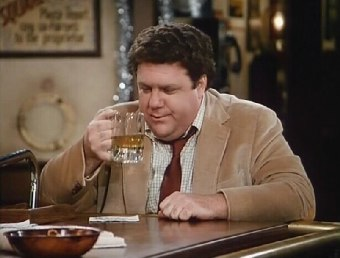Who Is An Alcoholic?
At CORE, we use the Big Book of Alcoholics Anonymous as a textbook. The word “alcoholic” conjures different images. They might include a college student who gets drunk every weekend, a TV character like Norm Peterson on Cheers, a drunk driver, an Absinthe-swilling artist, a lawyer at a three-martini lunch, or a bum sleeping on a park bench. For still others, this word may bring to mind a certain family member or friend who has been troubled by alcohol.

The images are many but, who is the alcoholic?
Significantly, being alcoholic isn’t necessarily the same as suffering from an “alcohol use disorder.” The latter is something that might be diagnosed by a psychiatrist or counselor. The most current manual for diagnosis, the DSM-5, offers many criteria for a so-called AUD. There are eleven in all. We will mention them below for comparison. They include:
1. Drinking more, or longer, than intended;
2. Wanting or trying more than once to cut down or stop drinking but can’t;
3. Spending a lot of time drinking or getting over the effects of drinking;
4. Craving alcohol to the point of distraction;
5. Drinking and accompanying consequences interfering with home, job, or school;
6. Continuing to drink despite it causing trouble with family or friends;
7. Giving up or cutting back on important activities in order to drink;
8. Engaging in a dangerous activity while or after drinking;
9. Continuing to drink despite feeling depressed or anxious over it, or after it exacerbated another health problem;
10. Having to drink more to get the same effect; and
11. Suffering withdrawal symptoms when the effects of alcohol wear off.
While all of these criteria are discussed in some fashion by the Big Book, the scope of an AUD is broader than alcoholism. This is because of the way the DSM-5 applies these criteria.
According to the manual, a patient who has experienced at least two of these criteria over a year may be diagnosed with an AUD. It further creates a sliding scale of severity, from mild, to moderate, to severe. Having only two of these symptoms is mild. With six, the patient’s disorder becomes severe. By creating this continuum of severity, the manual broadens the scope of potential patients who may qualify for services.
Still, having an AUD does not necessarily mean one is alcoholic. As an example, consider a college student who impulsively ditches his study group to attend a kegger, gets drunk, engages in unprotected sex, and awakes the next morning so hung over that he misses all of his classes. He arguably meets at least two of the required criteria for AUD. The young man has a problem. No doubt about that. He even may be diagnosed with an AUD. But, is he an alcoholic?
Without hearing more about our hypothetical college student’s experience with alcohol, we really can’t say. It’s worth noting here, however, that AA’s cofounder Dr. Bob not only quit a semester of college because of his drinking, but also found himself so impaired during another semester that he could not even complete his final exams. Dr. Bob’s experience strikes us as more consistent with alcoholism than our hypothetical student’s poor choices.
The Big Book’s authors didn’t write for every person who suffers problems from drinking. They wrote for alcoholics. While every alcoholic may be considered to have an AUD, the reverse isn’t always true.
Moreover, while there were hospitals, facilities, and treatments for alcoholism even in Bill W. and Dr. Bob’s day, the 12 Steps of Alcoholics Anonymous were written for a special class of persons for whom all such treatments proved futile. According to the Big Book, the alcoholic is bodily and mentally different from other drinkers, in one critically important sense:
“We alcoholics are men and women who have lost the ability to control our drinking. We know that no real alcoholic ever recovers control.”
Loss of control is the criteria for deciding whether one is alcoholic. As the book states, “If, when you honestly want to, you find you cannot quit entirely, or if when drinking, you have little control over the amount you take, you are probably alcoholic.” It is this loss of control, the utter inability to leave alcohol alone no matter how great the necessity or personal desire, that is the defining characteristic of every alcoholic.
Thus, the alcoholic is considered to be “powerless” over alcohol. This is so far beyond the ordinary experience of most people as to be baffling, even unbelievable. Why not just stop drinking? Or, having stopped, why ever start drinking again? These are fair questions. They are the same questions that every alcoholic will ask themselves, many times, during their drinking careers.
Whether one begins as a moderate or heavy drinker, it is upon losing control over their liquor consumption that they become alcoholic. Once that line is crossed, the alcoholic will experience cravings for more alcohol while they are drinking, and they will obsess about it even when they are not. There is no turning back from this condition, unfortunately. Further, the alcoholic doesn’t simply suffer from two criteria from the DSM-5 list. They fall into the living nightmare of experiencing all (or very near all) of them, all the time, with no way out.
We may think that today, 80 years after the AA Big Book was written, with all of the progress made by researchers, the medical breakthroughs, the building of so many facilities, and with insurance coverage, that a significant dent might have been made in the successful treatment of alcoholics. After all, new pharmaceuticals have been developed. We now have counseling, all sorts of therapies, and further treatments on top of these.
CORE’s recovery program is based on the 12 Steps. From our vantage point, our business shows no signs of slowing despite the advances of medicine and science. Moreover, most of our clients come to us with histories that include medication assisted treatment and interventions at medical centers, rehabs, and counseling centers. They still come to CORE, looking for recovery. In our experience, the following Big Book observation remains just as true today as when it was written:
“The alcoholic at certain times has no effective mental defense against the first drink. Except in a few rare cases, neither he nor any other human being can provide such a defense. His defense must come from a Higher Power.”
Happily, our clients who work the 12 Steps uniformly do recover. They experience a psychic change – a deep and effective spiritual experience which revolutionizes their attitude toward life, their fellows, and God’s universe:
“Strange as this may seem to those who do not understand once a psychic change has occurred, the very same person who seemed doomed, who had so many problems he despaired of ever solving them, suddenly finds himself easily able to control his desire for alcohol, the only effort necessary being that required to follow a few simple rules.”
Helping our newcomers discover this necessary spiritual experience is what CORE’s all about.

